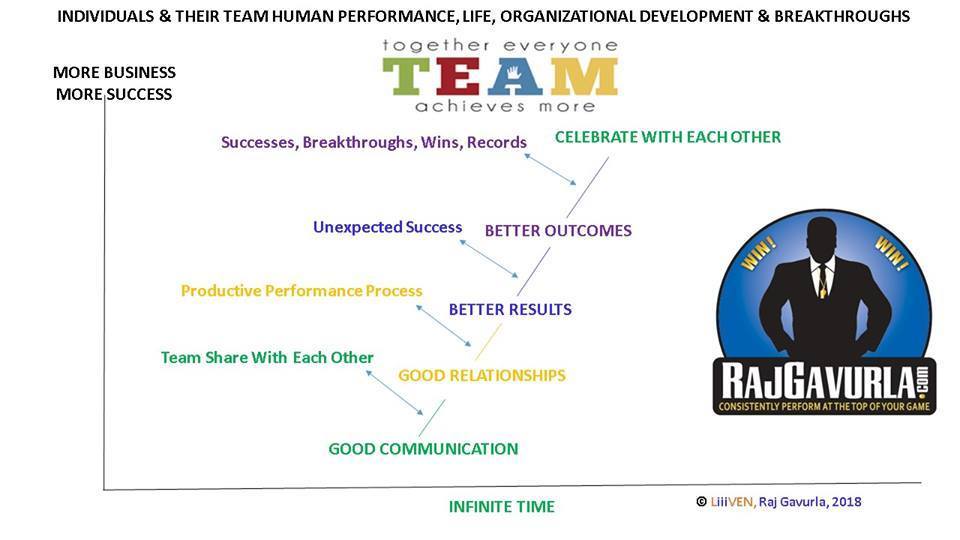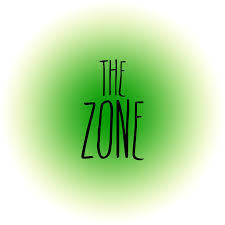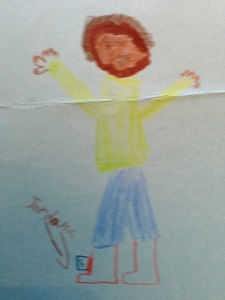Tag Archives for " words "
Describe An Experience, Situation, Or Sports Using Better Words & Better Language Instead of Violent Words & Language
“Win fun enjoy living a robust life making lives better to set personal best records experiencing intelligent breakthroughs in human performance, life, organizational development & breakthroughs. That means some win more, each wins, and no one loses unless there is violence.” – Raj Gavurla“
Seeing the violence occurring locally, nationally, and throughout the world, what can be done to bring civility? Why are people verbally attacking each other maliciously, denigrating, and degrading them self or another person?
This doesn’t honor the human dignity people need to help and work together to forward, elevate, and thrive humanity individually and collectively to raise the standard of living making people a better life, better living, and better future.
The English language is a lexicon of robust words of vibrancy and comity. How come more people don’t use them instead of violent words to describe non-violent experiences, situations, and sporting events? From the early days one can think we’ve come a long way from having to literally fight to survive and eat daily. Therefore, using violent words instead of killing was the next level of success. Hence, the fight/flight response. Important to know there are more responses bringing an abundance of sharing and connection. How about the sharing with each other without putting each other on the defensive response, the only win fun better common outcomes response, or the make lives better response, prevent deaths response, and save lives response?
With this sharing, connection, and building relationships with good communication more is learned and apply the learning. What are examples:
- Someone says “we, they, you or I killed them” or “I killed him or her.” when referring to an experience, situation, or sporting event. Really, who was killed? Thankfully, no one.
- In business or on a team people dismissing an idea or someone’s input saying, “you don’t know anything” or taking something a colleague said out of context and having a “grudge” against them instead of talking with them to help seeing this as an opportunity to correct a colleague to promote your values, good communication, and good relationship building to make your organization stronger. Your colleague will be thankful for you making the effort to embrace them versus disliking them and other colleagues will sense a good workplace culture and environment.
- When watching basketball, I hear announcers say and “a dagger” or “go for the jugular” to describe a three pointer or dunk. I’m glad there wasn’t “a dagger” and everyone’s “jugular” is in place. I would much rather hear it was an amazing high arching shot soft through the net or they are finishing or closing the game.
- Then, there is the “punch them in the mouth” or “we’ll kick your _ _ _.” Gratefully, there was no fist fight and no one was kicked. I would much rather hear win fun better outcomes the right way or what’s important is what we do and how we perform or play not what they do.
This usage of violent and malicious words and language is projecting itself into politics. Whether it’s during a presidential campaign or when politicians rally their base to “fight”. Some people take this literally being frustrated, have no emotional control, and cause societal violence. Why not instead rally them to “win fun better common outcomes” or “work together”?
These are just a few of the examples coming to my mind. My learning point is each example can be spruced with better words and better language making the description of the experience or situation more meaningful and pleasurable. It also becomes an educational teaching moment on people skills, realizing the essence of life, citizenship, and sportsmanship.
Unfortunately, these examples carry over into our kids lives as they watch t.v. and have social and educational experiences, situations, and play sports at school. The need for the use of better words and better language is a way to eschew conflict and violence in our kids school and during sporting events. The Bestie Boys lyrics “you missed two classes and no homework” “you gotta fight for your right to party”. Why not “you gotta only win fun better outcomes for your right to party?” Why are there fights at kids games by kids or adults? That’s non-sense! We don’t do that here.
By using better words and better language when describing an experience or situation you create good communication and good communication builds good relationships.
The following is my value graphic I use when helping and working together with an individual, group, or team to develop and make breakthroughs.

I’m always learning and apply the learning. Apply the use of better words and better language to see how civility and dignity by each person builds good communication, good relationships, and brings more civility locally, nationally, world wide, and globally.
Reflect on your experiences, situations, and sporting events. Could you have used better words, better language to create good communication and build good relationships to help and work together towards only win fun common better outcomes? Some win more, each wins, and no one loses unless there is violence.
What refulgent effect would this have in your family, with friends, in your workplace culture and in your environment? Would there be less stress, less anxiety, less yelling, less unhappiness, less loneliness, more civility, better outcomes, compassion, respect, helping and working together instead of denigrating and degrading your own or another person’s brain and mindset?
Apply the learning. This slight adjustment in our frame of mind I know and believe ignites peace over violence one on one, one by one.
“Praise people being careful, intelligent, and mature.” – Raj Gavurla
If interested, for your specific situation contact me at 864.569.2315, raj@rajgavurla.com to help you and your team.
What Do You Do With Your Time?
“Always apply your real-time wisdom (application of real-time learning) and knowledge.” – Raj Gavurla
Consistently Perform: Experiencing Intelligent Breakthroughs In Your Performance & Life
For those using my Your Raise The Bar Primer: Mental Performance Tools workbook, are you making sure you are rating your day (auspicious, robust, excellent, very good, good, not so good).
My buddy Jordan (2nd grader) I’m mentoring drew this drawing of me. It shows me wearing Jordans (shoes). As in the Nike Jordan brand.
This upgraded my day from “very good” to “robust” as my day rating
Mother’s Day in my workbook is rated “auspicious”.
I’ll check your workbook when I do our evaluation.
.
Innovation and Entrepreneurial Leadership
Consistent Innovation and Entrepreneurial Leadership Success =
Do What You Love + Financial (Capital) Flow & Distribution + Creative Innovative Idea + Clarity of Vision + Leadership + Communication + Team + Execution
“The Zone” Effect
By many “the zone” effect is described as everything is in slow motion, time stands still (isn’t a deterring factor), and your performance feels effortless.
Here are three phrases I use to get into “the zone” experiencing “the zone” effect:
- Business: “Work in the moment”
- Sports: “Play in the moment”
- Life: “Live in the moment”
My Life: “The Zone” Effect created by my buddy Jordan (2nd grader) I’m mentoring.

Your Most Recent “The Zone” Effect
Here’s an exercise for you:
What do you do with your time?
I. Think the right way in between what you are accomplishing (doing)
Ex: Business: the time in between doing your work
Sports: the time in between actual play
Life: the time in between your work and play
and
II. Think the right way while you are accomplishing (doing)
Ex: Business: the time while doing your work
Sports: the time during play
Life: the time during your life
III. Evaluate Accomplishments
IV. Next Step
““The primary cause of unhappiness is never the situation but your thoughts about it.”
– Eckhart Tolle
For programs and services, contact Raj Gavurla at 864.569.2315, raj@rajgavurla.com.
Why Listen To A Speaker?
“Serve, give, do, help your parents and family, organization, teammates, clients,
friends, and others.”– Raj Gavurla
Last week I attended an event where people spoke about their solution for a better living and better future. Afterwards, we took a break and as I networked with people I asked a few people what were the main points of a specific speaker. None of them could tell me. Therefore, it prompted me to write my post on why, how, and what to do when listening to a speaker.
Why?
When listening to a speaker, know why you are listening and discover why the speaker is saying what they say.
How?
Listen to how the speaker acknowledges, honors, what are the main points, examples, and stories.
What To Do?
What does the speaker do to connect with the audience. When a speaker connects that means the audience uses emotional intelligence to take this experiential learning and apply it to benefit their situation and benefit extension by telling someone about the speaker and event. Throughout your life you will be able to recall specifics about the speaker and message (it moved you, an example, phrases, sound bites, stories, or statistics) you’ll use at the right time (often and sometimes for decades) to help you succeed in what you are doing.
I recall speakers and their message, examples, phrases, sound bites, stories, or statistics throughout my life. It has a cumulative effect and I recall it when needed at the perfect time. The is the real value of listening to a speaker.
When you have this frame of mind each time you hear someone speak you receive an experiential learning credit.
If their is an internal or external conflict you are experiencing when listening to a speaker, here is my advanced performance and life conflict resolution and idea generation tool. Speaking is the highest form of experiential learning from a person.
I look forward to hearing about the greater value you are receiving from attending events with a speaker.
“The secret of change is to focus all of your energy, not on fighting the old but
on building the new.” – Dan Millman
For programs and services, contact Raj Gavurla at 864.569.2315, raj@rajgavurla.com.



